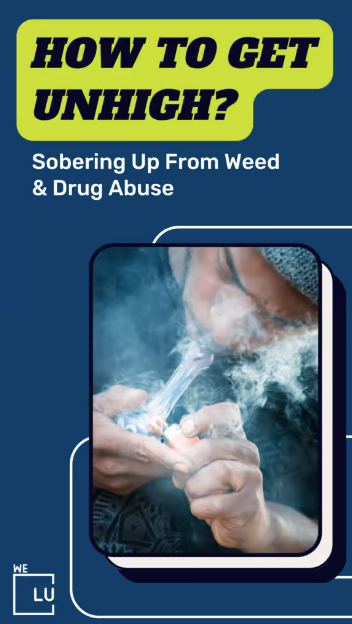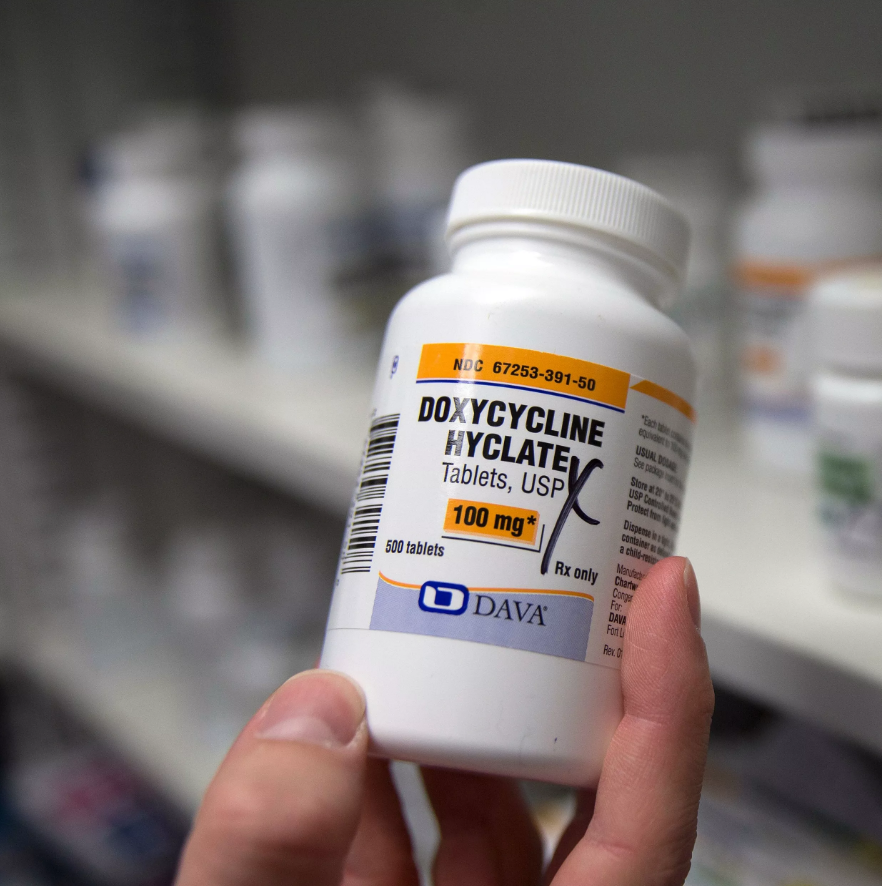Solving the Riddle: How Long Does Weed Stay in Your System?
As more states embrace marijuana legalization, access to the famous plant has never been easier. With new products hitting the market and changing societal attitudes, weed has become a staple for many. However, with the drug still illegal in some areas, employment organizations may require marijuana drug tests. So, the burning question remains: how long does marijuana stay in your system? Let’s dive into the estimated time frames based on individual factors and types of drug tests.
How Long Is Weed in Your System? Table For Detection Times
Here’s a table summarizing the approximate detection windows for marijuana in urine drug test results based on the frequency of weed use:
| Level of Use | Approximate Detection Time in Urine |
|---|---|
| Occasional or one-time use | Up to 3 days |
| Moderate use (several times a week) | 5 to 7 days |
| Regular or daily use | Up to 30 days or longer |
It’s always recommended to consult with a healthcare professional or laboratory specializing in drug testing for more accurate and specific information regarding marijuana detection.
How Long Does It Take Weed to Leave Your System?
Around the world, an estimated 192 million people smoke pot for fun. The federal government of the United States still considers it illegal, despite its widespread decriminalization elsewhere.
Many businesses, government agencies, and other organizations implement drug testing as a condition of employment or participation. Because it is easy to collect and analyze urine, it is often used as a screening tool in drug testing.
How long THC remains detectable in the urine after weed use depends on the user’s frequency, dosage, and metabolic rate. To detect weed in urine, it typically takes 30 days. However, depending on the aforementioned variables, this time can be much shorter or longer. Urine tests can detect cannabinoid concentrations but can’t tell you how high you were when tested.
How Long Does Weed Stay in System Chart
The time weed stays in the urine can vary depending on several factors, including frequency and duration of use, metabolism, body fat percentage, and individual differences. Here is a general guideline for how long weed may be detected in urine:
- Occasional or one-time use: weed can typically be detected in urine for up to 3 days after use.
- Moderate use (several times a week): Weed may be detectable in urine for 5 to 7 days after use.
- Regular or daily use: In individuals who use weed heavily or daily, it can be detectable in urine for up to 30 days or even longer.
These “how long does weed stay in your system urine test” estimates vary. Various drug testing methods, including weed urine tests, have different sensitivities and detection thresholds, influencing how long weed is detectable.
Hydration, exercise, and metabolism can affect how long weed stay in the urine detection window. Additionally, other types of drug tests, such as blood or hair tests, may have different detection periods.
Suppose you have concerns about how long weed stays in urine or need accurate information regarding weed tests. In that case, it’s best to consult a healthcare professional or laboratory specializing in drug testing.
Weed Urine Test
Urine tests for Weed typically use cutoff levels to identify weed’s presence. These thresholds indicate the lowest detectable levels of THC metabolites in the urine that can produce a positive test result. The cutoff for a positive result differs from test to test and organization to organization.
More sensitive tests can detect THC metabolites in urine at lower concentrations than the typical urine test for marijuana. In some cases where a lower detection limit is required, such as in court or a workplace drug testing program, these tests may be used.
Because THC and its metabolites are eliminated through urine, factors that affect urine retention, such as hydration levels, can affect the rate at which these compounds are eliminated from the body and, in turn, the length of time they can be detected.
Overall, understanding how long marijuana stays in urine and the different types of urine tests for marijuana is essential for anyone who uses marijuana and may be subject to drug testing. Knowing what factors can shorten or lengthen the time it takes to make a detection is crucial for being able to adjust accordingly.
Employers and other groups conducting drug tests should also be familiar with the range of acceptable results. They must follow the rules and regulations of the places where they conduct tests.
How Long Does Marijuana Stay In Urine?

Skip To:
Learn More:
- How To Stop Smoking Weed Cold Turkey? Dangers & Effects
- How to Sober Up On Weed?
- Xanax and Weed, Is it Safe to Mix Them?
- How to Flush Weed Out of Your System?
- How Long Does A High Last? Weed High & Substance Abuse
- How Long Do Weed Highs Last? Cannabis Effects, Use & Abuse
- How To Get Unhigh Fast? Sobering Up From Weeds & Drug Abuse.
- Weed Edibles And How To Get Started With Addiction Treatment
- Depression and Marijuana. Is Marijuana A Depressant? Does Marijuana Help Depression?
- Marijuana Addiction
How Long Does Weed Stay in Urine, Blood, Saliva, and System Table
Below is a table highlighting the detection time for marijuana in various bodily fluids and systems. The Y-axis represents different levels of use: occasional, moderate, and heavy. The X-axis represents the approximate detection windows for marijuana in urine, blood, saliva, and the overall system for varying use levels.
| Weed Use | Urine Detection Time | Blood Detection Time | Hair Detection Time | Saliva Detection Time | System Detection Time |
|---|---|---|---|---|---|
| Occasional or one-time use | Up to 3 days | Up to 24-48 hours | Not applicable | Up to 24-72 hours | Up to 3 days |
| Moderate use (several times a week) | 5-7 days | 2-7 days | Not applicable | Up to 1-2 weeks | Up to 2 weeks |
| Regular or daily use | Up to 30 days or longer | Up to several weeks | Up to 90 days | Up to several weeks | 90 or more days |
These rough estimates may change depending on your unique metabolism, body composition, water intake, and other factors. Although testing for weed use in hair can provide a larger detection window, it typically requires a more extended period of use before results are available.
Get Help. Get Better. Get Your Life Back.
Searching for Accredited Drug & Alcohol Rehab Centers Near You? Or Mental Health Support?
Even if you have failed previously, relapsed, or are in a difficult crisis, we stand ready to support you. Our trusted behavioral health specialists will not give up on you. Call us when you feel ready or want someone to speak to about therapy alternatives to change your life. Even if we cannot assist you, we will lead you wherever you can get support. There is no obligation. Call our hotline today.
FREE Addiction Hotline – Call 24/7Weed Addiction Statistics
Although marijuana’s acceptance has increased in recent years, it is not without risks. Here we’ll look at some of the most telling data about the risks of marijuana use. The potential risks to physical and mental health from marijuana use and the results of driving while high are among the topics covered.
Understanding the available data can help individuals make educated decisions about their use and contribute to ongoing discussions about cannabis policy and regulation, even though much remains to be learned about the risks and benefits of marijuana use.
17.5%
Among those 12 and older, marijuana consumption increased from 11% to 17.5%.
Source: NIDA
55 Million
The number of American adults who currently use marijuana.
Source: NIDA
24%
The percentage of 12th-graders who have used marijuana in the past year.
Source: NIDA
Weed Facts
What is Weed?
Marijuana, also called weed, is a substance obtained from the cannabis plant for THC-induced effects. Weed is the most widely used illegal substance in the US, according to the National Institute on Drug Addiction (NIDA).
Weed Effects
Humans have looked into various methods to enjoy marijuana’s effects. The most popular ways to consume marijuana are as hand-rolled joints or through pipes.
Another alternative method of marijuana consumption is via vaporizers. There are numerous recipes for baking cannabis into brownies and cookies and blending it with butter, tea, and oils.
When THC, the primary psychoactive component of marijuana, travels to the brain and enters the bloodstream, the effects of marijuana become apparent.
Weed Dependence
Cannabis use can lead to addiction. Marijuana consumption has negative psychological and physical repercussions. Physical symptoms include difficulty breathing, rapid heartbeat, nausea, and vomiting.
Regarding their mental health, marijuana users may also be more susceptible to hallucinations, paranoia, disordered thinking, depression, anxiety, and suicidal thoughts.
Furthermore risky for women, and marijuana use during pregnancy. Premature birth, low birth weight, and other harmful effects have all been related to marijuana usage by pregnant women.
It is conceivable to overdose on marijuana to the point of suffering significant symptoms, such as anxiety and paranoia, even though a life-threatening overdose has never been documented.
Occasionally, people who experience a psychotic reaction from marijuana are in the emergency room. Like intense vertigo, which results in nausea and vomiting, it can prompt patients to seek medical attention.
How long does weed stay in your system urine test?
Urine is the most common drug test method. Urine tests can detect marijuana for different durations depending on the frequency and level of use. Occasional users can test positive for up to 4-7 days, moderate users for 7-21 days, and heavy users for more than 21 days.
How Long Does Weed Stay in Your System Popular FAQs
-
How long does weed stay in your urine?
How long THC remains detectable in the urine depends on the individual’s metabolism, how often they use weed, and the specificity of the drug test. Typically, the detection window for weed in urine is between 30 days before and 30 days after use.
-
How long does weed stay in urine after one hit?
The duration of weed’s presence in urine after a single inhalation can fluctuate based on various factors, such as an individual’s metabolic rate, the potency of the marijuana, and the drug test’s sensitivity.
-
How to pass a urine drug test for weed?
Various techniques can enhance the probability of passing a urinary drug screening, such as refraining from using weed for at least one month before the test, maintaining proper hydration, and engaging in routine physical activity. Acknowledging that cheating or falsifying a drug test is unlawful and unscrupulous and may result in severe repercussions is imperative.

Get Your Life Back
Find Hope & Recovery. Get Safe Comfortable Detox, Addiction Rehab & Mental Health Dual Diagnosis High-Quality Care at the We Level Up Treatment Centers Network.
Hotline (877) 378-4154How to Pass a Urine Drug Test for Weed?
The use of weed during pregnancy is a topic of debate, as it can adversely affect the developing fetus. Regarding the duration of weed detection in urine during pregnancy, it is noteworthy that the detection period does not differ significantly from that of non-gravid individuals.
Weed can be detected in urine for up to 30 days after use. The duration of the aforementioned time frame may be subject to variability based on multiple factors, such as the frequency and quantity of cannabis consumption, an individual’s metabolic rate, and the drug test’s specificity.
First-class Facilities & Amenities
World-class High-Quality Addiction & Mental Health Rehabilitation Treatment
Rehab Centers TourRenowned Addiction Centers. Serene Private Facilities. Inpatient rehab programs vary.
Addiction Helpline (877) 378-4154Proven recovery success experience, backed by a Team w/ History of:
15+
Years of Unified Experience
100s
5-Star Reviews Across Our Centers
10K
Recovery Success Stories Across Our Network
- Low Patient to Therapist Ratio
- Onsite Medical Detox Center
- Comprehensive Dual-Diagnosis Treatment
- Complimentary Family & Alumni Programs
- Coaching, Recovery & Personal Development Events

Weed Withdrawal & Detox
Harsh and unpleasant withdrawal from weed can be experienced by those who have become dependent on the drug. The good news is that the discomfort of withdrawal can be mitigated, and many tools are available to help you get through it.
One way to manage cannabis withdrawal symptoms is with the help of a doctor or an addiction specialist. With their assistance, you can reduce your weed consumption gradually, and they can provide medication to alleviate withdrawal symptoms.
Supplements to ease weed withdrawal symptoms may be helpful in conjunction with conventional medical treatment. Melatonin, valerian root, and magnesium are all supplements that can help with insomnia, anxiety, and muscle tension that come along with withdrawal.
World-class, Accredited, 5-Star Reviewed, Effective Addiction & Mental Health Programs. Complete Behavioral Health Inpatient Rehab, Detox plus Co-occuring Disorders Therapy.
CALL (877) 378-4154End the Addiction Pain. End the Emotional Rollercoaster. Get Your Life Back. Start Drug, Alcohol & Dual Diagnosis Mental Health Treatment Now. Get Free No-obligation Guidance by Substance Abuse Specialists Who Understand Addiction & Mental Health Recovery & Know How to Help.
Concerned About “How Long Does Weed Stay In Your System?” We Level Up Dual Diagnosis Treatment Specialists Can Help.
Facilities may use slightly different terminology when referring to dual diagnosis or co-occurring disorders. However, dual diagnosis treatment is typically defined as the care given to a person with both a substance use disorder and a mental health disorder. Since co-occurring disorders are strongly correlated with instances of substance abuse, treating clients with dual diagnoses is an integral part of our inpatient treatment experience.
Clients are better prepared for recovery if their treatment plan accounts for the physiological challenges of withdrawal, the emotional ties to drug use, and the management of co-occurring mental health disorders. A comprehensive evaluation of mental health can reveal treatment options. Behavioral therapy and medication treatment are available through appointments with mental health counselors and medical care providers. We Level Up can provide premium care for those with dual diagnoses at our dedicated facility.
We understand the delicate complexities of how mental and substance abuse disorders can affect others and perpetuate addiction. We offer specialized treatment to give those with a dual diagnosis the best possible shot at a full and lasting recovery.
It can be challenging to accept the possibility that you are suffering from a mental illness. However, treatment is often dramatically simplified once a patient’s substance abuse problem has been adequately diagnosed. An accurate diagnosis of these underlying conditions requires the expertise of a medical professional. We strongly recommend that you seek professional help from a reputable rehab facility if you suspect an additional mental health disorder contributes to your addiction. Contact We Level Up right away.
Experience Transformative Recovery at the We Level Up Treatment Center.
See our authentic success stories. Get inspired. Get the help you deserve.



Start a New Life
Begin with a free call to an addiction & behavioral health treatment advisor. Learn more about our dual-diagnosis programs. The We Level Up treatment center network delivers various recovery programs at each treatment facility. Call to learn more.
- Personalized Care
- Caring Accountable Staff
- World-class Amenities
- Licensed & Accredited
- Renowned w/ 5-Star Reviews
We’ll Call You
Watch the Marijuana Withdrawal Symptoms Timeline, Half-life, Effects, and Addiction Dangers Informative Video
Discover valuable insights into the world of marijuana withdrawal with our informative video. Watch as we delve into the withdrawal symptoms timeline, the THC half-life in your system, the potential effects, and the dangers of addiction. Whether you’re curious about the process or seeking knowledge to make informed choices, this video provides a comprehensive overview of what to expect when dealing with marijuana withdrawal.
Search How Long Does Weed Stay in Your System? Urine, Blood, Saliva Topics & Resources
Sources
- National Institute on Drug Abuse (NIDA) – Marijuana: https://www.drugabuse.gov/drug-topics/marijuana. How long does weed stay in your system?
- National Highway Traffic Safety Administration (NHTSA) – Drugs and Human Performance Fact Sheets: https://www.nhtsa.gov/sites/nhtsa.dot.gov/files/documents/812440-drugsandhumanperformancefactshheet.pdf. How long does weed stay in your system?
- Centers for Disease Control and Prevention (CDC) – Marijuana and Public Health: https://www.cdc.gov/marijuana/index.htm. How long does weed stay in your system?
- National Conference of State Legislatures (NCSL) – Marijuana Overview: https://www.ncsl.org/research/civil-and-criminal-justice/marijuana-overview.aspx How long does weed stay in your system?
- National Organization for the Reform of Marijuana Laws (NORML) – State Laws: https://norml.org/states. How long does weed stay in your system?





